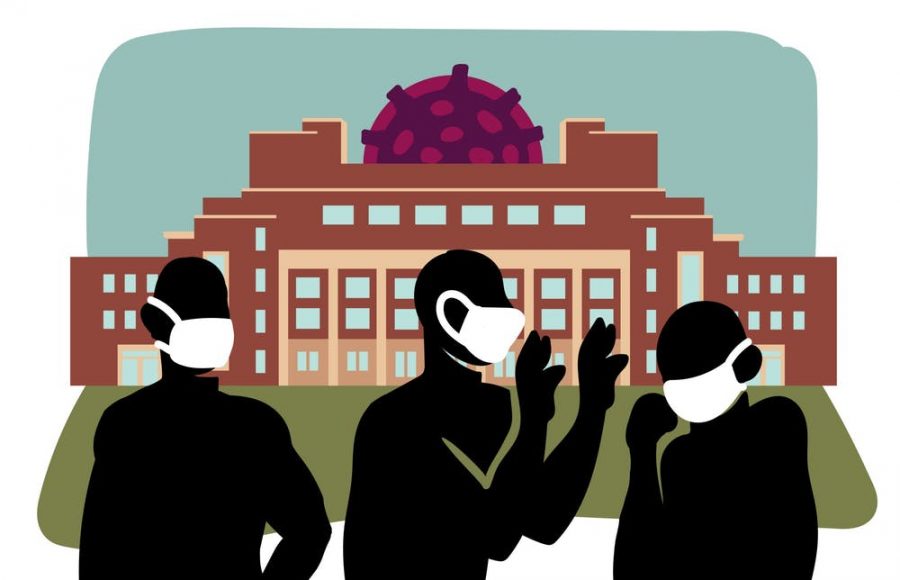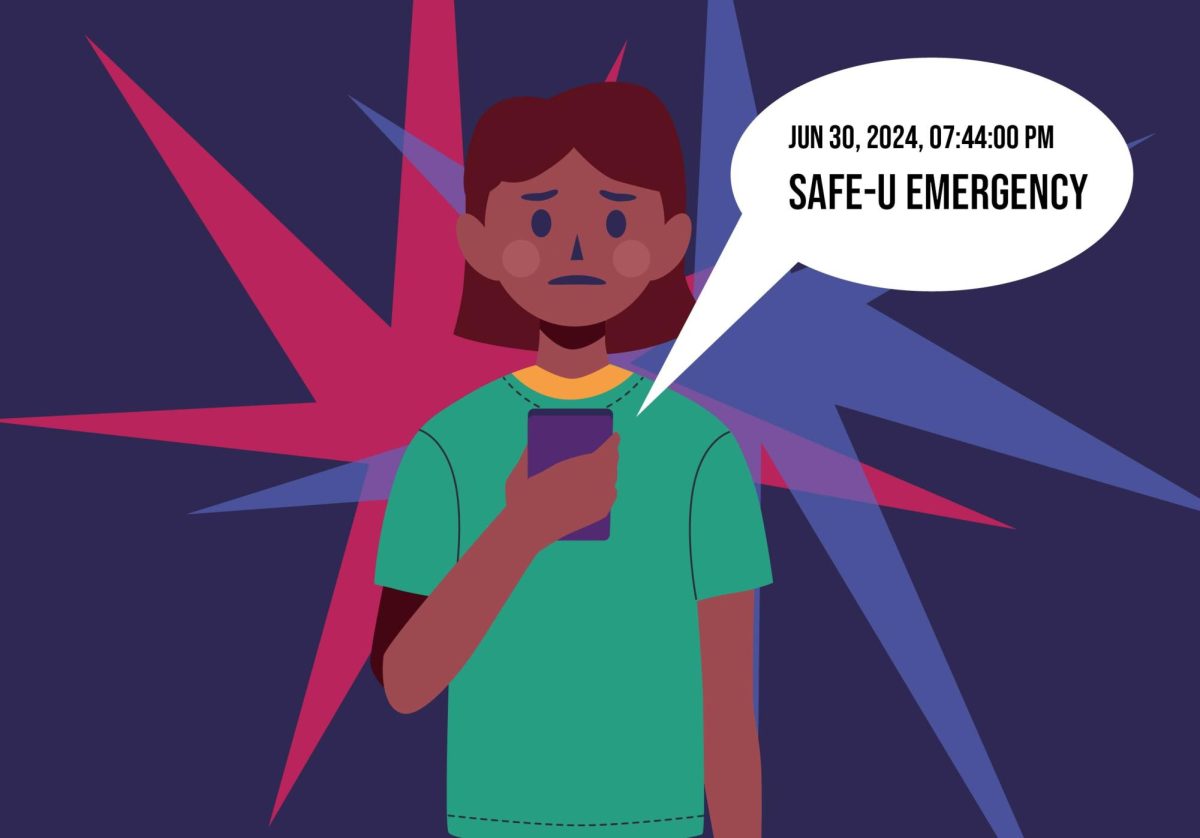The University of Minnesota has established reporting processes throughout the pandemic in order to report and issue sanctions when university COVID-19 policy is violated.
While the University’s administration has urged safe behavior in emails over the past several months, large social gatherings, such as those held on Halloween, have been a major contributor to the spread of the virus on campus. There are several mechanisms in place to issue sanctions when students violate policies or public health measures.
Public health conditions
Public health experts from the Minnesota Department of Health have been communicating with colleges and universities around the state to provide guidance on creating COVID-19 enforcement policies.
“We’ve been working with colleges and universities to plan for COVID since March and meeting weekly, and even collectively the colleges and universities came together to put together ideas on some of what the best strategies are for responding to COVID this fall,” said Cynthia Kenyon, an epidemiologist and K-12 specialist with the Minnesota Department of Health.
Much of how these guidelines are implemented is left up to individual universities, Kenyon said.
Following events like Halloween that have been linked to a large uptick in case numbers, Kenyon said that universities are trying to improve their messaging and enforcement policies.
“I think there were some lessons learned from Halloween. I think enforcement is one thing, but it’s also how do we better message and I think that’s something we are looking into next spring,” Kenyon said. “I think we can work on that and do better on that.”
Enforcing COVID-19 policy can be difficult for those in the 18 to 24 age range, which includes many students, Kenyon said. This group has frequently received negative responses and attention from public health experts and mainstream media throughout the pandemic.
“The other balance you have to think through with enforcement is when do you actually do a punishment enforcement … sometimes that can actually make things worse because people aren’t coming forward if they’re not being honest,” she said. “Then they might not get tested, we also might not find out about all the first contact, and then we can’t quarantine and that actually ends up being a bigger problem.”
The University’s reporting process
The University has several mechanisms for reporting COVID-19 violations in place that are used depending on the situation and where violations occur. COVID-19 policies are included as part of the Student Conduct Code and, for students residing in University housing, the Maroon and Gold Sunrise Plan.
Students who violate the COVID-19 policies within the Sunrise Plan are referred to Housing and Residential Life staff, said University spokesperson Lacey Nygard in an email to the Minnesota Daily. Violations might include breaking the midnight curfew, inviting guests from outside the building, neglecting to wear a mask or gathering in large groups.
Possible sanctions include terminating a student’s housing contract, a non-disciplinary warning or a written warning.
Violations of the COVID-19 guidelines in the Student Conduct Code are overseen by the University’s Office of Community Standards (OCS). Specific sanctions can include restricting students’ building access and limiting in-class instruction, Nygard said.
Students, faculty and staff can also file reports of COVID-19 related misconduct through OCS using an online form.The office will then investigate the claim and issue a sanction if necessary, said Sharon Dzik, director of OCS in an email to the Daily.
In past years, OCS has received approximately 600 reports annually, although the number may be different this year due to COVID-19 and other factors.
“Given the many cases of online scholastic dishonesty and of students violating [COVID-19] University and State guidelines, our numbers could be higher than that this year,” Dzik said in the email.
Students can also file anonymous reports through the University’s UReport system for concerns about faculty and staff misconduct around COVID-19 policy.
Student group COVID-19 policies
OCS also works with fraternities and sororities in addition to student groups to handle any violations of COVID-19 policy.
“[Student Unions and Activities], Fraternity and Sorority Life staff, and OCS staff often work together to tease out if it is a group issue, individual issue or both,” Nygard said in the email.
Interfraternity Council (IFC) President Jackson Deal said the University gave the organization vague guidelines for handling COVID-19, as they were not initially given specific instructions from the University other than to follow state guidelines.
The University and IFC agreed that all policy guidelines and violations were to be handled through IFC‘s separate judicial process. This relationship differs from other Greek life organizations at the University, as most do not have their own judicial systems in place.
However, the University still has the ability to step in to cases involving IFC if needed, Deal said.
Other groups on campus have also crafted their own protocols. Close-contact intramural sports like soccer and football were replaced by more physically distanced sports such as golf and tennis this semester. Masks are required and specific guidelines for each sport were created.
The University has been supportive in aiding sports groups when creating their own guidelines, according to Competitive Sports Assistant Director Drew Devore.
“They trusted us to be the experts on what we were doing,” Devore said, “So for me, it took about four or five weeks to be able to write all the policies for all of our intramural activities. [The University] gave us small edits here and there about things we needed to change.”



























Rusty
Jan 17, 2021 at 5:09 pm
It works the same way as reporting social and philosophical violations to the East German STASI, Ministerium für Staatsicherheit (German: “Ministry for State Security”) in 1970.